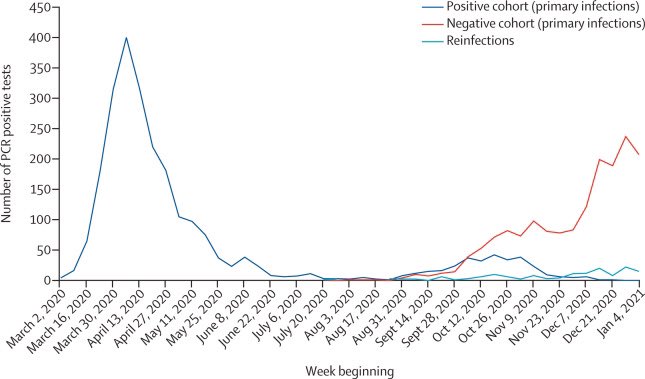
Study of the Pfizer-BNT vaccine in 100 nursing home residents (64 with past COVID-19) & 15 healthcare workers.
A good antibody response was detected in 97% with past COVID-19, 93% of healthcare workers, but only 61% of residents who’d never been infected.
academic.oup.com/cid/advance-ar…
A good antibody response was detected in 97% with past COVID-19, 93% of healthcare workers, but only 61% of residents who’d never been infected.
academic.oup.com/cid/advance-ar…

A similar pattern was found with regard to cellular immunity.
A good response was found in 97% of residents with past COVID-19, and in 87% of healthcare workers, but only 48% of residents who’d never been infected.
A good response was found in 97% of residents with past COVID-19, and in 87% of healthcare workers, but only 48% of residents who’d never been infected.
This study was done 4 weeks after the first vaccine dose.
It’s unclear if the results indicate that older people may take longer to have a good response to the vaccine, or if it is less effective in older people.
If the latter, attaining herd immunity becomes more important.
It’s unclear if the results indicate that older people may take longer to have a good response to the vaccine, or if it is less effective in older people.
If the latter, attaining herd immunity becomes more important.
Addendum: Participants had received 2 doses of the vaccine, 3 weeks apart.
That is, the study was conducted 1 week after everyone had received their second dose.
That is, the study was conducted 1 week after everyone had received their second dose.
As Dr Elias has pointed out, it’d be helpful to repeat this study and take a second blood sample after a month or two.
We could then see if it just takes a bit longer for older people to react to the vaccine, or if they really do have a weaker response.
We could then see if it just takes a bit longer for older people to react to the vaccine, or if they really do have a weaker response.
https://twitter.com/pheski/status/1381220787454087169?s=21
• • •
Missing some Tweet in this thread? You can try to
force a refresh






